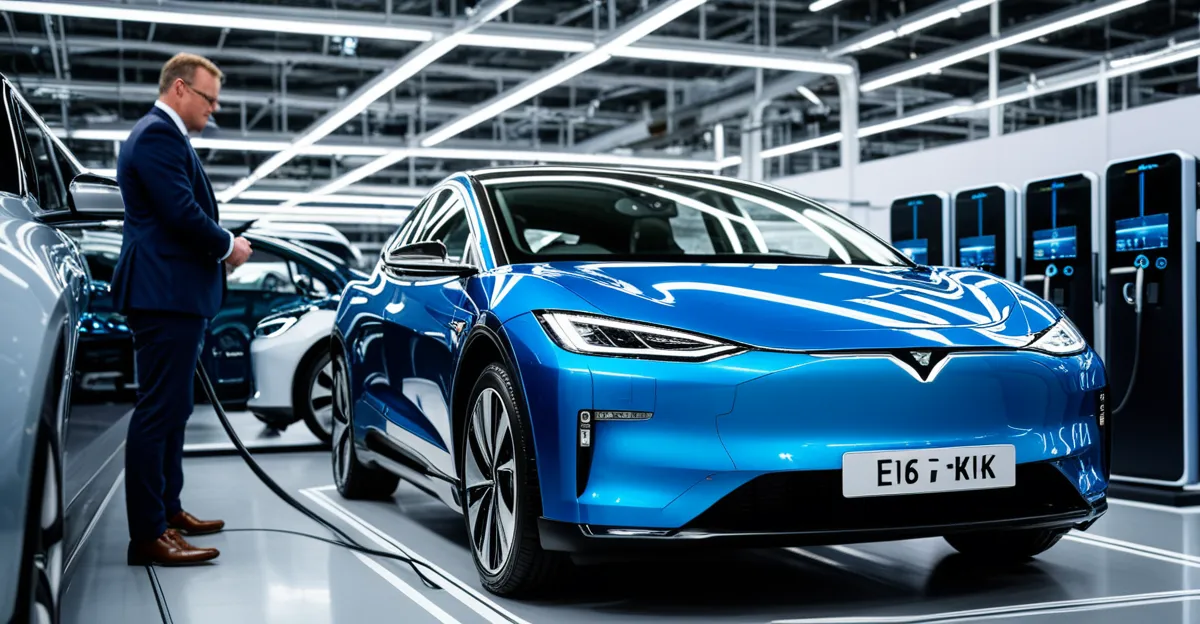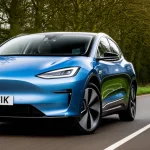Rapid Growth of Electric Vehicle Sales in the UK
Electric vehicles UK have seen unprecedented momentum, with EV sales trends showing sharp increases year-over-year. Recent automotive industry statistics highlight that electric vehicle adoption has surged as UK consumers respond to growing environmental awareness and government incentives. The UK’s EV sales have grown to comprise a substantial share of new car registrations, surpassing many expectations.
This rapid shift is influenced by several key factors driving the consumer transition towards electric vehicles. Enhanced charging infrastructure, improved battery technology offering longer ranges, and rising fuel costs are major considerations. In addition, tighter emissions regulations and government grants make EVs more financially attractive compared to conventional petrol and diesel cars.
This might interest you : How Can UK Automotive Innovations Shape Future Mobility Trends?
Comparatively, the market trends indicate that while sales of traditional internal combustion engine vehicles are stagnating or declining, electric vehicles UK continue to dominate growth segments. This trend signals a disruptive change in the automotive industry statistics, presenting both opportunities and challenges for manufacturers and consumers alike. The electric vehicle surge in the UK is reshaping market dynamics and accelerating the transition towards zero-emission transportation.
Challenges for Traditional UK Car Manufacturers
Traditional car manufacturing in the UK faces significant hurdles amid the rapid rise of electric vehicles UK. The surge in EV sales trends exerts pressure on legacy production lines and associated supply chains. This shift demands a fundamental retooling of factories historically dedicated to internal combustion engine (ICE) vehicles. Automotive industry statistics reveal that manufacturers must scramble to adapt their operations to new EV technologies, which require different components, assembly processes, and skill sets.
Also read : How Did Electric Vehicles Revolutionize the UK Automotive Industry?
Adapting to these technologies presents obstacles such as sourcing batteries, developing electric powertrains, and establishing new supplier networks. Manufacturers like Jaguar Land Rover and Mini exemplify these challenges. Both have announced plans to pivot toward more electric models, but this transition involves complex engineering changes and substantial investment. Legacy systems optimized for conventional vehicles face disruption, increasing production costs and timelines.
The challenges extend beyond machinery; workforce retraining and overcoming internal resistance add layers of complexity. The speed of the EV market transformation means manufacturers must balance maintaining output with investing in innovation to stay competitive. This difficult balancing act highlights the deep automotive challenges UK industries confront as they navigate evolving consumer preferences and stricter environmental regulations.
Adaptation Strategies and Investments in EV Technology
The rapid shift toward electric vehicles UK compels manufacturers to adopt comprehensive adaptation strategies. This transformation requires significant EV investment UK to upgrade facilities and develop cutting-edge technologies. Leading carmakers are channeling substantial capital into retooling plants, enabling mass production of EVs and batteries adapted to UK market demands.
Strategic partnerships and collaborations have become central in accelerating EV development. For example, alliances with battery producers and tech firms foster innovation and secure supply chains crucial for EV ramp-up. Such cooperative efforts reduce risks and enhance manufacturing efficiency amid the challenging transition.
Manufacturing plants are undergoing extensive modifications to integrate EV assembly lines. This involves installing new equipment compatible with electric powertrains and battery packs, distinct from traditional engine assembly workflows. These investments position manufacturers to respond quickly to evolving EV sales trends.
By prioritizing innovation and infrastructure enhancement, UK car-makers aim to sustain competitiveness within the changing automotive industry statistics landscape. While costly, these adaptation strategies promise long-term gains by aligning production with consumer shifts towards electric vehicles, ensuring the UK automotive sector remains resilient and future-ready.
Impact on the UK Automotive Job Market
The shift to electric vehicles UK is significantly reshaping automotive jobs UK by altering skill demands and employment patterns. As manufacturers focus on EV production, traditional roles tied to internal combustion engines decline, prompting urgent workforce adaptations. The need for expertise in battery technology, electric drivetrains, and software diagnostics has increased sharply, requiring extensive retraining programmes.
Questions arise about job security: Are workers facing outright losses or transitioning into new roles? The answer is complex. While some automotive jobs UK tied to conventional engines are lost, the expanding EV market creates new positions in manufacturing, maintenance, and research. For example, battery assembly and software development jobs are growth areas. However, regional disparities exist. Areas historically dependent on ICE vehicle production, like the Midlands, face greater disruptions, intensifying the challenge of balancing job retention with innovation demands.
Workforce impacts also reflect industry-wide automotive challenges UK as businesses adapt to evolving production lines. Employers and government bodies increasingly collaborate to fund retraining and apprenticeships, aiming to equip employees with skills aligned to the emerging EV economy. Therefore, the EV transition employment landscape requires a proactive, coordinated response to manage change while supporting sustainable job growth across the UK.
Role of Government Policies and Incentives
Government EV policies UK are pivotal in accelerating electric vehicle adoption. These policies include purchase grants and subsidies that reduce upfront costs for consumers, making electric vehicles UK a more accessible choice. Additionally, regulatory measures such as stricter emissions standards and planned bans on new petrol and diesel cars by 2030 strongly influence automotive industry statistics by reshaping market demand.
How do incentives affect manufacturers? Incentives encourage traditional car manufacturing to pivot toward electric models by creating stable demand. Firms benefit from grants that offset research and development costs, enabling increased EV investment UK. This financial support helps bridge the gap in transitioning from internal combustion engine production to electric vehicle technology.
Industry groups react positively to these policies, noting that consistent government backing is essential for sustaining momentum in EV sales trends. However, challenges remain in ensuring incentives effectively target both consumers and manufacturers without causing market distortions.
In summary, government EV policies UK and incentives directly shape automotive regulation and market dynamics. They stimulate demand, support innovation, and foster industry collaboration, all crucial for achieving the UK’s ambitious zero-emission transportation goals.







